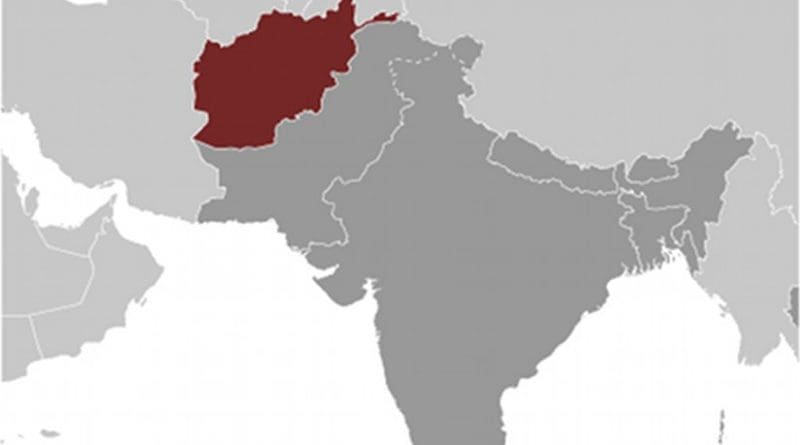Uncle Sam And Pakistani Generals Sail Under False Colors In Afghanistan – Analysis
When foreign forces begin to retreat from Afghanistan, the war theatre will change its players from foreigners to Afghanis. The American withdrawal may well be the last testament to such a ritual in Afghanistan. Obama’s drawdown and transition policy of handing down responsibility to local security forces is unlikely to pay off. The government in Kabul seems balanced on a knife-edge and the volatile situation could get out of control.
The implication of the United States’ troop drawdown has already started to play out. Amid a rapid deterioration in security across the country, the recent spate of effective operations and high profile assassinations by the Taliban indicates that the Western-backed government in Kabul could not survive very long after the foreign withdrawal is completed.
Contrary to a positive rhetoric about the progress in counterinsurgency in Afghanistan by General David Petaeus, the ex-commander of the American and Nato forces, the situation on the ground signifies a military and political deadlock. The multibillion-dollar training of the Afghan national army and police force which was one of the key objectives of the President Obama’s 2009 surge policy may at best be taken as a waste of money. This year $12 billion will be fritted away on building army and police forces in Afghanistan, according to media reports.
What actually are the Afghan National Army (ANA) and police force? To be blunt, these forces are just other names for ethnically-based militia forces of the old Northern Alliance which helped the US-led forces to topple the Taliban in 2001. Many Afghans believe that in the event of a full withdrawal, the Afghan army and police forces would collapse like sand castles, no matter how strong they may be. Afghan sources signal that the rate of recruitment within these forces is not more than a systematic desertion. Experiences of the past three-decade indicate that Afghans not need much training when it comes to fighting. The ANA, in fact, needs a doze of will to fight.
The ongoing state of affairs in Afghanistan is reminiscent of the beginning of the Russian withdrawal in the late 1980s. The Russians left behind a government led by Najibullah, the last communist ruler, with a huge military force. The machiavellian tyrant, Najibullah was a talented and shrewd statesman in spite of having a haunted past. He was a long-time KGB chief apparatchik and the director of a brutal communist intelligence agency in Kabul for many years.
Najibullah shed his past and managed to rule Kabul singlehandedly for about four years without the presence of a single Russian boot on Afghan soil. By contrast, Karzai clearly has neither political adroitness nor the courage of his predecessor. His weeping and casual rants don’t seem to work when his country is going to get more explosive.
Besides Karzai’s dysfunctional government in Kabul, a direct support to the Taliban from next door, Pakistan has a devastating effect on Nato’s war in Afghanistan. Safe havens in Pakistani soil are strengthening the Taliban’s operational capabilities.
Above and beyond Western pressure, Pakistan continues to live at peace with al-Qaida affiliated militants. The Pakistani military believes that control over the Pashtun-dominated Taliban is tantamount to a compulsive insurance policy against disintegration of the country. Pakistani military and spy organization, the ISI knows the Afghans and Afghanistan much better than the Americans do. They know perfectly well that the Taliban will dominate Afghan politics in a post-Western Afghanistan.
Worse still, Pakistan makes feverish attempts to keep the Taliban glued to the al-Qaida ideology for fear of spilling over nationalism into their ranks. In the ISI’s thinking, an al-Qaida affiliated Taliban is far less harmful to Pakistan than a Pashtun nationalist Taliban. Pakistan is using the Islamic card to prevent Pashtuns from going the way of the Baluchi separatists. Many political analysts remain ignorant about this crucial factor.
In such a perilous situation, the only thing that can rescue Afghanistan from falling into a civil war and prevent a geopolitical disaster in Central Asia, is transparent and unmediated peace talk with the Taliban. Peace talk could detach the insurgency from dependence on Pakistan which is crucial for reducing Western casualties as well. Negotiations with the mediation of Pakistan have its own deadly perils, for Pakistani usual double games.
In the lead-up to the invasion of Afghanistan by the US, Islamabad served for the Taliban as the only window to the outside world. The ISI encouraged the Taliban not to hand over Osama bin Laden by convincing them that the US would never invade Afghanistan. At the same time, Pakistan also was trying to convince the Americans that rooting out of the Taliban was the only option. Such duplicity by the ISI is exposed by Mullah Zaeef, the former Taliban ambassador to Islamabad in his book My Life with the Taliban.
Reconciliation and peace talk with medieval religious groups such as the Taliban may appear awkward. The Taliban could be defined at best as a social throwback by any Western standards; however, it is an indigenous religious movement with a gross-root support among the Pashtuns in Afghanistan as well as Pakistan. The elimination of such a group is thus impossible in any meaningful sense. The West could gain from negotiations with the Taliban more than they can achieve by an endless war. But the CIA and Pentagon that are steering everything in Afghanistan will never listen. They put Uncle Sam in a deadly self-destructive spree in Afghanistan.

